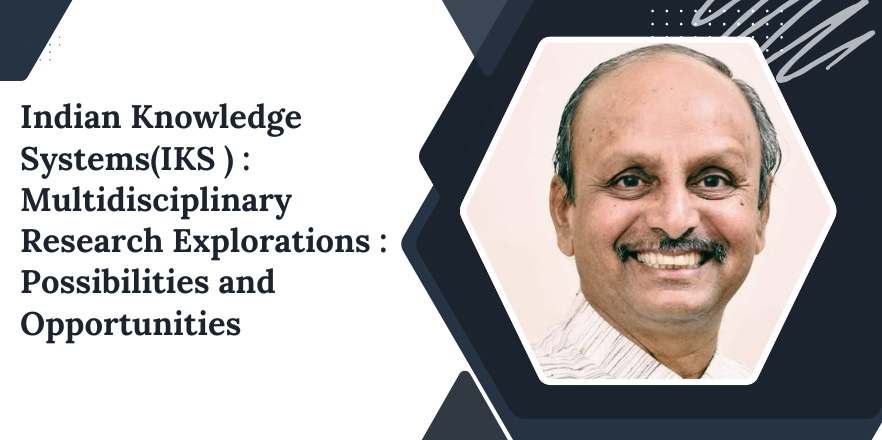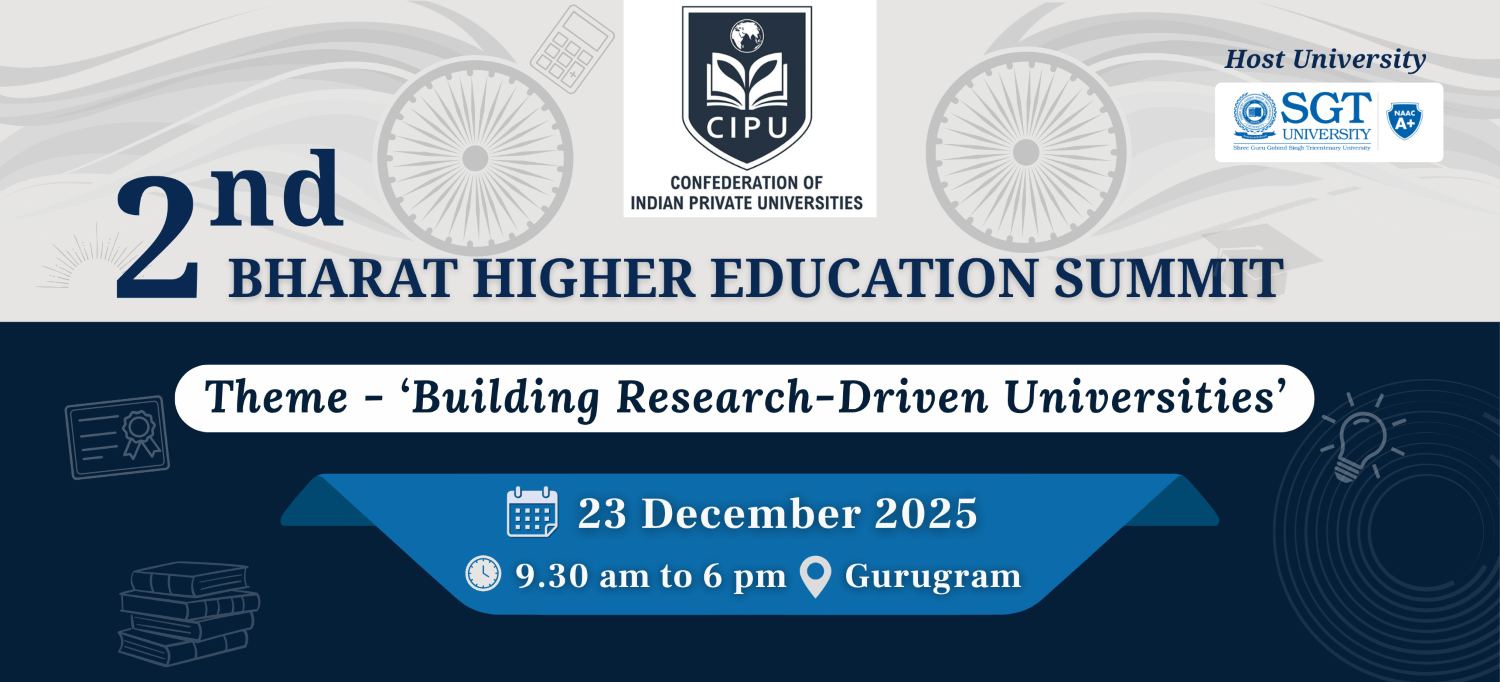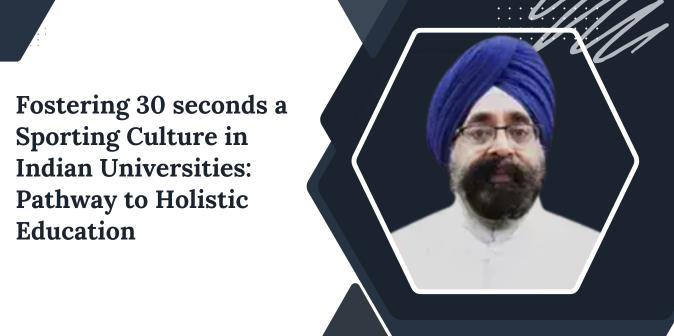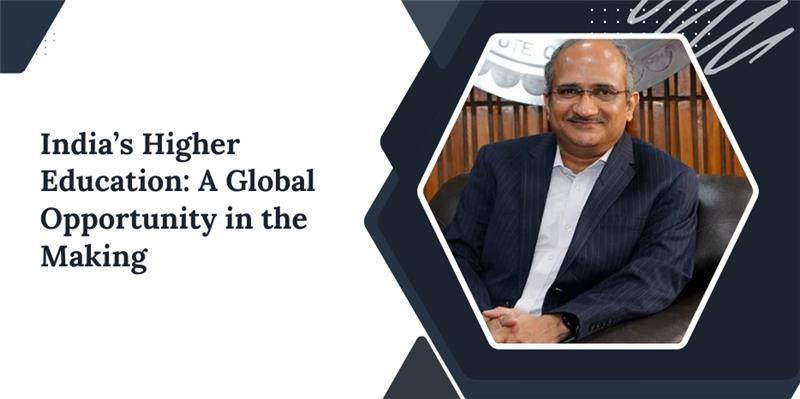
|
Prof. (Dr.) Sudhir Gavhane
Veteran Higher Educationist & Former VC -MGM University, Aurangabad ( Sambhajinagar) & YCMOU -Nashik, Former Director-Dean , Liberal Arts, Science and Commerce , MITWPU, Pune Email - professorsudhirg1955@gmail.com |
Abstract :
The Indian Knowledge System (IKS), a vast and dynamic intellectual tradition spanning millennia, is increasingly recognized as a profound source for contemporary research and innovation. This report analyzes the multidisciplinary research possibilities and opportunities inherent in IKS, framing it not as a historical artifact but as a living body of knowledge with direct relevance to 21st-century challenges. The core of IKS is a holistic and interconnected worldview that fundamentally diverges from the fragmented, reductionist paradigms of modern Western science. This philosophical distinction is not a barrier but a strategic advantage, enabling the development of novel, transdisciplinary research methodologies.
The analysis identifies compelling research avenues across four key domains: Health and Wellness, Science and Technology, Architecture and Environmental Sustainability, and Social Sciences and Management. In health, the scientific validation of traditional practices like Ayurveda and Yoga is paving the way for a new, integrative healthcare model that combines the preventive wisdom of IKS with the diagnostic precision of modern medicine. In technology, the logical structure of Sanskrit grammar, formalized by Panini, offers foundational principles for developing advanced computational linguistics and artificial intelligence systems. For sustainability, ancient architectural and environmental principles provide an ethical framework that challenges anthropocentric development, fostering a more resilient and reciprocal relationship with nature. Finally, in the social sciences, ancient Indian political and economic thought offers a values-driven model of governance and management that can address issues of corporate greed and social inequality.
Keywords: IKS, multidisciplinary research , Indian Knowledge Tradition , Indian Philosophy , Indian Culture, Indian History, Indian Literature, Indian Arts, Indian Architecture, Indian traditional medicine , Indian Wellness, IKS research, Digital Humanities
Introduction :
The research and development ecosystem for IKS is gaining significant momentum, driven by top-down institutional support from the Ministry of Education's IKS Division. This national initiative, aligned with the National Education Policy 2020, has established a formal infrastructure of research centers, grants, and fellowships, thereby institutionalizing IKS as a credible field of scholarly pursuit. However, this momentum is met with significant challenges, including academic rigidities, a lack of trained faculty, and the ethical considerations surrounding biopiracy and the preservation of traditional knowledge. Overcoming these obstacles will require a strategic framework that promotes authentic, long-term collaboration, invests in innovative pedagogical approaches, and formalizes a unique assessment and ethical review process for IKS research. The future of IKS research lies in a mutually beneficial feedback loop where ancient wisdom informs modern solutions, creating a more sustainable, ethical, and holistic future.
Foundations of the Indian Knowledge System (IKS)
1.1 Defining IKS: A Holistic and Interconnected Framework
The Indian Knowledge System (IKS), also referred to as Vignanam, encompasses the rich philosophical, scientific, and cultural heritage of India, known as Bharat. This vast reservoir of wisdom has been developed and preserved over millennia through ancient texts, oral traditions, and experiential learning, reflecting a deep understanding of human existence, societal harmony, and sustainable living. The scope of IKS is expansive, including philosophical traditions like the Vedas and Upanishads, physical and mental disciplines such as Yoga and Ayurveda, and fields as diverse as Vedic mathematics, ancient architecture, and Indian arts. A defining characteristic of IKS is its core philosophical principle of interconnectedness, which posits that everything in the universe is part of a single, harmonious web. This holistic perspective views the material, intellectual, and spiritual realms as inextricably linked. This stands in marked contrast to many modern approaches to knowledge, which often compartmentalize the world into separate, reductionist fields of study. For example, modern science often isolates variables to simplify complex realities, a methodology that is fundamentally at odds with the IKS worldview.
This interconnected view is the foundation for IKS's inherent emphasis on sustainability and a harmonious relationship with nature, where human well-being is seen as dependent on the health of the entire cosmic ecology.
The fundamental divergence between the holistic IKS worldview and the reductionist Western scientific paradigm is more than a philosophical point; it presents a profound methodological challenge for contemporary research. Simply applying siloed modern research methods to IKS domains may fail to capture their true essence. For instance, studying an Ayurvedic herb in isolation through modern pharmacology, while useful, ignores its function within a holistic system that considers the patient's unique constitution, diet, lifestyle, and mental state. The true opportunity for research lies not in merely subjecting IKS content to modern tools, but in developing new, transdisciplinary research methodologies that can effectively bridge this gap. This requires a shift in how researchers structure problems, moving away from single-variable experiments towards complex, multi-factor analyses that can accommodate the interconnectedness of human health, the environment, and technology, thereby fostering "systems thinking" that is central to IKS.
1.2 Core Domains of IKS and their Contemporary Relevance
The breadth of IKS as a subject of inquiry is immense, with its core domains offering numerous points of intersection with modern disciplines. The Ministry of Education's IKS Division and various academic programs have formally categorized and structured these areas to facilitate contemporary research and education. These include:
- Science and Mathematics: Including Vedic cosmological theories, ancient Ganitam (mathematics), astronomy, hydrology, and Vedic phonetics.
- Health and Wellness: Focused on Ayurveda, Yoga systems (Patanjali, pre- and post-Patanjali), and traditional herbal knowledge.
- Arts and Culture: Encompassing Nritya Kala (dance), dramaturgy, music, iconography, and temple architecture.
- Engineering and Architecture: Drawing from Vaastushilpashatra, which explores building energies, design, and sustainable practices.
- Social and Political Thought: Rooted in ancient texts like the Arthashastra, which provides guidance on governance, economics, and leadership.
This systematic classification demonstrates that IKS is not a monolithic concept but a diverse collection of intellectual traditions. Institutions are formalizing the study of these domains, offering courses on topics ranging from Vedic Mathematics to ancient Indian political thought, thereby providing a clear direction for scholarly inquiry and paving the way for new academic disciplines.
2. Multidisciplinary Research Possibilities: Mapping IKS to Modern Disciplines
2.1 Health and Wellness: From Ayurveda to Integrative Healthcare
The ancient Indian systems of medicine and wellness, particularly Ayurveda and Yoga, are gaining global attention for their potential to complement modern healthcare. Contemporary research is now applying advanced scientific tools to validate the efficacy of traditional practices and herbs. Laboratory studies are employing technologies such as mass spectrometry, chromatography, and genetic sequencing to analyze the active compounds of well-known Ayurvedic herbs like Ashwagandha, Turmeric, and Brahmi. This rigorous process allows scientists to map the molecular structures of these plants, track their absorption within the body, and evaluate their long-term effects, providing a scientific basis for their traditional use in stress relief, inflammation, and cognitive health.
Clinical trials are also being conducted to test Ayurvedic formulations against modern pharmaceuticals, aiming to develop complementary or alternative treatment options for various conditions. For example, studies have shown that turmeric can reduce inflammation and improve joint health in patients with Osteoarthritis, while Ashwagandha has been found to have anxiolytic (anti-anxiety) and anti-inflammatory effects.
Beyond herbal medicine, the neurological effects of Yoga and meditation are being systematically investigated through brain imaging studies. A study led by UCLA Health found that while both a memory-training group and a yoga group showed improvements in cognition, mood, and resilience, only the yoga group preserved gray-matter volume in brain regions essential for cognitive function, whereas the memory-training group showed a decline. This evidence suggests that Yoga is not just for stress reduction but can function as a "brain-fitness exercise" that enhances neuroplasticity. Other research indicates that yoga strengthens many of the same brain networks as aerobic exercise, and multi-component interventions like a full yoga class stimulate multiple brain regions, leading to changes in brain function and cognition. The empirical validation of IKS health practices positions them not as a replacement for modern medicine, but as a source of novel hypotheses and a foundation for a new, integrative healthcare paradigm. This approach is not about proving IKS is "better" than modern medicine, but about leveraging millennia of observational data to accelerate drug discovery and develop new preventive care models. Rather than starting from scratch with synthetic compounds, researchers can begin with time-tested Ayurvedic formulations and use advanced tools to identify and isolate active compounds. This shifts the relationship between the two systems from one of competition to one of collaboration. The ultimate goal is to create a model that combines the preventive, holistic focus of Ayurveda with the diagnostic and curative precision of modern medicine, offering new possibilities for addressing chronic diseases and antibiotic resistance.
2.2 Science and Technology: Bridging Ancient Wisdom and Modern Innovation
The logical and mathematical precision of ancient Indian texts is proving to be a valuable resource for contemporary science and technology. The most prominent example is the connection between Sanskrit and computational linguistics. Panini's Ashtadhyayi, a text from over 2,500 years ago, is considered the world's first formal language specification. This grammar, described with "mathematical precision," remarkably parallels modern computational linguistics and formal language theory with its use of rule-based morphological generation, context-sensitive grammar rules, and recursive definitions.
This ancient structure provides valuable insights for modern Natural Language Processing (NLP) and Artificial Intelligence (AI) applications. Researchers are using principles from Panini's grammar to develop sophisticated tools such as morphological analyzers, syntactic parsers, and semantic analysis tools. Sanskrit's logical framework also influences the training of AI language models and the creation of structured knowledge bases from philosophical and scientific texts. The parallels between Panini's grammar and modern AI are not coincidental; they suggest a convergence of ancient logical systems with contemporary computational models, positioning Sanskrit as a "living" source of foundational linguistic principles for technology. The challenge for computational linguists of handling the morphological richness of natural languages is addressed by Sanskrit's highly structured grammar, which provides a potential blueprint or "gold standard" corpus for developing new machine learning architectures.
Beyond linguistics, ancient India made significant contributions to other STEM fields. The concept of zero and the decimal notation, foundational to modern mathematics, originated in ancient India. The Sulbasutras, dating back to the Vedic period, contain detailed instructions for geometric constructions, demonstrating an early understanding of geometric principles. Aryabhata's work in the 5th century CE introduced trigonometric functions and proposed a geokinetic hypothesis that the Earth rotates on its axis, a revolutionary concept for its time. The work of developing computational tools for Sanskrit serves a dual purpose: it preserves and makes ancient knowledge accessible while simultaneously driving innovation in core AI and NLP research, creating a mutually beneficial feedback loop where ancient wisdom informs modern technology.
2.3 Architecture and Environmental Sustainability
The principles of Vastu Shastra, a traditional Hindu system of architecture, are being rediscovered for their relevance to modern sustainable design. Rooted in sacred geometry, Vastu emphasizes spatial harmony and the integration of the built environment with nature. It works with natural forces like sunlight, wind, and gravity to create balanced spaces.
Contemporary architects and designers are applying these principles by strategically orienting doorways and windows to align with positive energy flows and maximize natural light, which reduces the need for artificial lighting. The use of indigenous materials such as stone, wood, and clay bricks is also encouraged to reduce energy consumption and transportation costs, making buildings more climate-responsive and environmentally sustainable.
This integration of Vastu is not about adhering to rigid rules but about using its principles as a guideline to create "energetically balanced" spaces that enhance human well-being and environmental sustainability. The underlying philosophy of IKS, which emphasizes a "harmonious relationship between humans and nature," provides a powerful ethical framework that aligns with and complements global sustainability frameworks, such as the UN Sustainable Development Goals (SDGs). Ancient practices in water conservation (e.g., baolis and johads), biodiversity preservation, and sustainable agriculture are viewed not merely as engineering solutions, but as expressions of a worldview that sees nature as "kin or a partner" rather than a resource to be exploited.
The integration of Vastu Shastra and IKS environmental principles is not just a cultural choice but a practical and ethical strategy for building a more resilient and sustainable future. The core IKS principles of "responsibility" and "adaptability" provide a much-needed long-term framework that is often absent from purely profit-driven development models. The research opportunity lies in developing new models for sustainable architecture and environmental governance that are rooted in these ethical principles, offering a compelling counterpoint to dominant Western scientific paradigms that tend to isolate variables and prioritize reductionist economic goals.
2.4 Social Sciences and Management: Reinterpreting Statecraft and Economics
Ancient Indian political and economic thought, contained in texts like Kautilya's Arthashastra, provides a rich foundation for modern social sciences. The Arthashastra, written in the 4th century BCE, is a comprehensive treatise on political economy and "total management". It offers an "inside-out approach" to leadership, advising that a leader must first conquer internal enemies such as anger, greed, and ego before they can effectively manage an organization or state. This principle of self-management as a prerequisite for external management is directly applicable to contemporary leadership challenges and contrasts with purely performance-based models.
Ancient Indian economic thought also presents a nuanced and sophisticated perspective. Contrary to popular perception, wealth (Artha) was considered as important as righteousness (Dharma). Texts like the Mahabharata and the works of Panini and Kautilya demonstrate a deep understanding of fiscal prudence, monetary concepts like compounding, and the relationship between risk and interest rates. Furthermore, ancient texts discuss labor issues, advising kings to pay wages on time and mentioning the existence of labor unions (Nigam, Sangha, Nikaya), which challenges the Eurocentric view of these concepts.
Ancient Indian thought offers a socio-economic model that challenges the core assumptions of modern, materialistic economics. The IKS perspective, exemplified by the Purusharthas (Dharma, Artha, Kama, Moksha), shows that economic activity (Artha) is a means to a larger, multi-dimensional end. The concept of Dharma in business, for instance, finds modern parallels in corporate social responsibility and stakeholder theory. Research in this area can lead to the development of new management and economic models that are more ethical, sustainable, and better equipped to address contemporary challenges like corporate greed and wealth inequality.
3. The IKS Research and Development Ecosystem
3.1 Institutional and Policy Landscape
The momentum behind IKS research is largely driven by a top-down, nationally-backed institutional and policy framework. The Indian Knowledge Systems (IKS) Division, an innovative cell under the Ministry of Education (MoE) at AICTE, has been established to promote interdisciplinary research on all aspects of IKS, to preserve and disseminate it for societal applications. This initiative is in direct alignment with the National Education Policy 2020 (NEP 2020), which explicitly mandates the integration of IKS into higher education curricula. The University Grants Commission (UGC) has further reinforced this by directing higher education institutions to require students to take credit-based IKS courses. The IKS Division has launched several key schemes and programs to formalize this research ecosystem:
- Competitive Grants Program: Provides discretionary funding for original, scholarly research in thematic areas identified by experts.
- IKS Research Centers: Establishes and funds dedicated centers in both traditional schools and STEM institutes to consolidate dispersed IKS activities and catalyze research, education, and outreach.
- Postdoctoral Fellowship Program: Supports interdisciplinary research by young scholars, emphasizing the application of modern tools to traditional knowledge for contemporary problem-solving.
- IKS Textbook and Course Materials Scheme: Facilitates the development of educational materials to address the rising demand for IKS courses in higher education.
This formal, government-backed institutionalization signifies a major shift. IKS is moving from a niche academic pursuit to a government-supported, institutionalized field, creating a new and formal career path for scholars. Other grant-making institutions, such as the Science and Engineering Research Board (SERB) and the Indian Council of Social Science Research (ICSSR), also provide funding opportunities for which IKS research proposals can be submitted. SERB funds research in all areas of science and engineering based on the novelty and competence of the proposal, while ICSSR supports interdisciplinary social science projects.
3.2 Profile of Leading Research Centers
The IKS initiative has led to the establishment of dedicated research centers across India's premier academic institutions. These centers are not merely archives but dynamic hubs for interdisciplinary collaboration.
Table 1: Key IKS Schemes and Funding Programs
| Program Name | Launch Year | Funding Body | Objectives & Focus |
|---|---|---|---|
| Competitive Grants Program | 2025-26 | IKS Division, MoE | Original scholarly research in thematic areas identified by experts; rejuvenation of IKS research. |
| IKS Research Centers | 2025-26 | IKS Division, MoE | Establish and fund centers in traditional schools and STEM institutes to consolidate activities and catalyze research, education, and outreach. |
| IKS Postdoctoral Fellowships | 2025-26 | IKS Division, MoE | Supports interdisciplinary research by young scholars; emphasizes application of modern tools to traditional knowledge. |
| IKS Textbook & Course Materials Scheme | 2025-26 | IKS Division, MoE | Addresses global demand for IKS education by facilitating integration into higher education curricula. |
| SERB Grants | Varies | SERB | Funds basic research in all frontier areas of Science and Engineering; proposals on IKS must demonstrate novelty. |
| ICSSR Grants | Varies | ICSSR | Supports high-quality, independent, and collaborative research in social sciences, including interdisciplinary topics. |
Table 2: IKS Research Centers and Their Focus Areas
| Institution | City/State | Focus Area(s) |
|---|---|---|
| IIT Delhi | Delhi | Public Systems, Education & Pedagogy, Technology in IKS, Health & Well-being |
| IIT Mandi | Himachal Pradesh | Mental health, application of AI to IKS |
| NIT Calicut | Kerala | Deep ecology, integrating sacred geography and sustainability |
| SV Vedic University | Tirupati | Speech and linguistics, edutainment, and contemporary relevance of Vedas. |
| IIIT Bangalore | Karnataka | Yoga, meditation, and mindfulness, integration of technology and IKS |
| IIIT Bangalore | Karnataka | Yoga, meditation, and mindfulness using AI interventions and brain mapping (EEG). |
| IIT Madras | Tamil Nadu | Center for Indian Knowledge Systems |
| IIT Tirupati | Andhra Pradesh | Kalamkari art, natural farming, and food preservation. |
| School of Planning and Architecture | Bhopal, M.P. | Town Planning |
4. Challenges and Nuanced Perspectives
4.1 Academic and Institutional Challenges
Despite the growing institutional support, the integration of IKS into modern education faces several significant challenges. A primary obstacle is the rigidity of existing curricula, which often prioritize globalized theories and leave little room for traditional knowledge systems. This often leads to a superficial treatment of IKS topics. Furthermore, there is a critical shortage of trained faculty and curated resources. Many teachers lack the necessary training in IKS to present topics in an engaging and accurate manner, and the scarcity of properly translated materials poses a major language barrier, as much of IKS is rooted in Sanskrit and regional languages. A fundamental challenge is the perceived lack of scientific validity of IKS in the eyes of many. The holistic and qualitative nature of IKS learning outcomes often clashes with the quantitative, evidence-based frameworks of modern academia. Conventional assessment methods are poorly suited to evaluating IKS content. This challenge is not new; historically, orthodoxy has sometimes impeded scientific growth, as evidenced by the misinterpretation of Aryabhata's geokinetic hypothesis in the past. This highlights the ongoing need to balance traditional reverence with objective scientific inquiry.
4.2 Intellectual and Ethical Considerations
The intellectual and ethical landscape of IKS research is complex. A major concern is the potential for biopiracy and the exploitation of traditional knowledge by researchers and commercial enterprises without proper compensation or acknowledgment of its creators and custodians. The Traditional Knowledge Digital Library (TKDL) and provisions in the Indian Constitution, such as those related to the protection and improvement of the environment and the public trust doctrine, are important mechanisms to combat this exploitation. However, the vulnerability of IKS, much of which is passed down through oral tradition, remains a serious issue.
The broader philosophical tensions between Western and IKS paradigms cannot be ignored.
The historical subjugation of indigenous knowledge systems under colonial rule and the current "Eurocentric lens" of contemporary education pose serious challenges to the formalization of IKS. The study of IKS is therefore not just a scientific endeavor but also a post-colonial one, aimed at decentering Western perspectives and uplifting diverse, non-Western epistemologies. This academic and political discourse highlights the need for research frameworks that respect the cultural roots of IKS while adapting them for modern
Table 3: IKS Principles and Conflicts with Dominant Systems
| IKS Principle | Relevance to Modern Disciplines | Conflict with Dominant Systems |
| Interconnectedness | Transdisciplinary research, systems thinking | Reductionist economic models, fragmented knowledge silos |
| Responsibility | Environmental ethics, rights of nature | Anthropocentric resource exploitation, profit-driven development |
| Adaptability | Adaptive management, resilience studies | Static, top-down planning approaches |
| Holistic Living | Preventive healthcare, mental well-being | Symptom-focused, reactive approaches |
5. Strategic Recommendations and Future Outlook
5.1 A Strategic Framework for Future Research
To fully realize the potential of IKS, a strategic framework for future research is essential. This must move beyond a simple multidisciplinary approach to a truly transdisciplinary one, where traditional knowledge holders are not just subjects of study but are integrated into the research process as co-researchers and co-authors. This ensures a collaborative and ethical research environment. Research questions should be designed to use IKS as a source of novel hypotheses rather than as a subject for mere validation. For example, instead of asking "Does Ayurveda work?" a more advanced research question could be "How can the Panchakarma protocol be modeled using a systems biology approach to identify novel metabolic pathways for chronic disease management?" This approach harnesses the unique IKS worldview to drive new discoveries.
5.2 Policy and Funding Recommendations
Overcoming the institutional challenges will require specific policy interventions. Policymakers should mandate and fund the creation of mandatory IKS pedagogy training for faculty, ensuring that educators are equipped to teach these subjects effectively. Robust digital repositories for IKS texts, complete with reliable translations, are needed to overcome language barriers and make the knowledge base accessible. Furthermore, government grant-making bodies should establish dedicated, long-term funding streams for IKS research, separate from general science and social science grants, to reflect the unique requirements of this field. Finally, there is a need to develop a unique peer-review and assessment framework that is suitable for the holistic and qualitative nature of IKS research, perhaps through a dedicated journal category or a specialized review board.
5.3 Cultivating the Next Generation of Scholars
Cultivating a new generation of scholars who are fluent in both traditional knowledge and modern scientific methods is crucial for the long-term success of the IKS initiative. This can be achieved by developing joint degree programs, creating mentorship opportunities that pair traditional scholars with modern researchers, and leveraging public outreach programs and competitions to build awareness and pride in this heritage. In conclusion, the Indian Knowledge System represents a powerful and untapped resource for addressing many of the 21st century's most pressing challenges. By embracing its holistic and interconnected worldview, and by strategically investing in research, education, and ethical frameworks, India can not only rejuvenate its intellectual heritage but also provide the world with a new model for a more sustainable, ethical, and integrated future.





